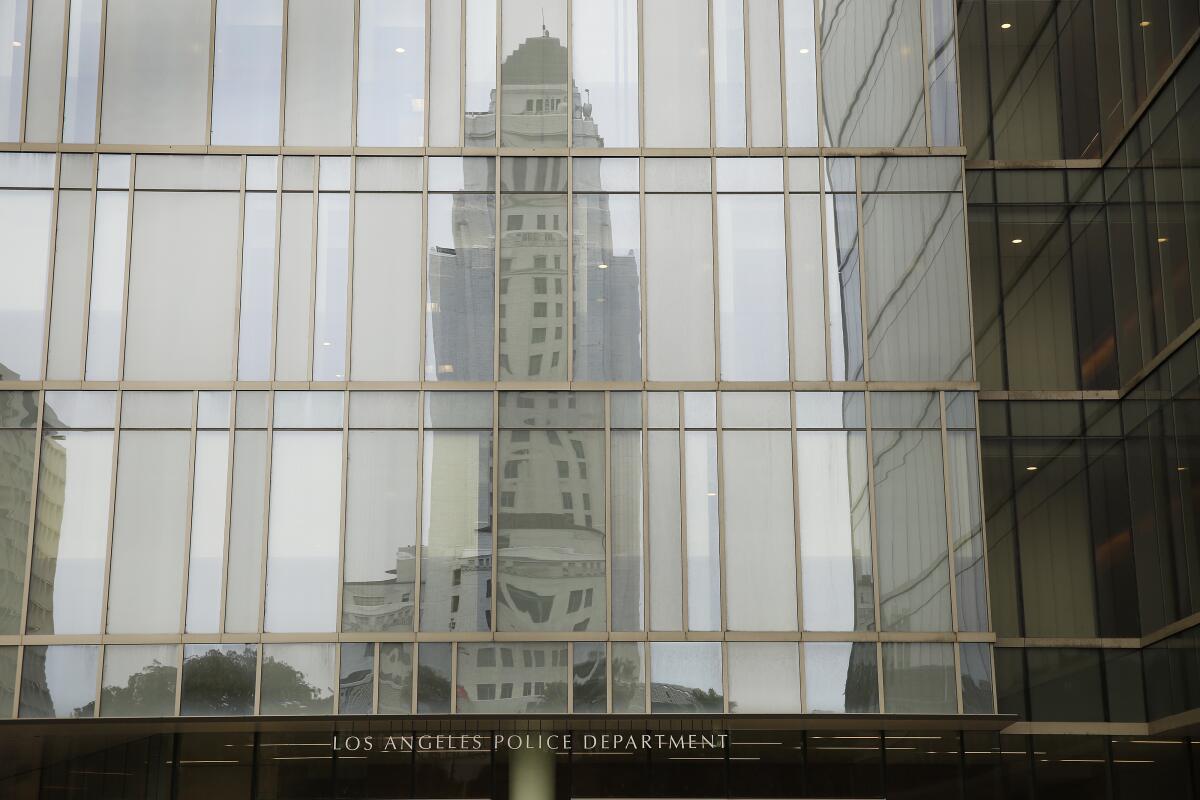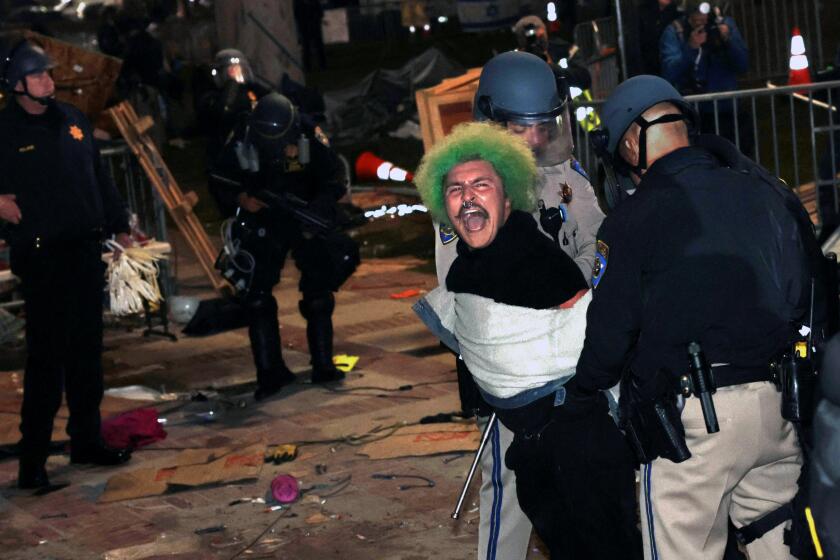LAPD officer pleads no contest to falsely identifying people as gang members

- Share via
An officer accused of falsifying records as part of an L.A. Police Department gang-framing scandal pleaded no contest Thursday to six felony counts.
Prosecutors alleged Braxton Shaw falsified dozens of interview cards that police fill out while in the field, labeling as gang members 43 people who had made no such admission or had outright denied affiliation. Some of those people ended up in a state gang database.
The 41-year-old officer entered the plea as part of a deal with prosecutors to resolve multiple felony counts that could have seen him sentenced to decades in prison.
Shaw was among six officers from the LAPD’s elite Metropolitan Division charged in 2020 in the falsified-data investigation. Charges for the other five were dismissed.
Prosecutors said some of the people Shaw misidentified wound up in the state database known as CalGang. The LAPD and the county district attorney’s office later said body-worn camera footage from Shaw and his partners showed the cards had been falsified.
California Highway Patrol officers fired dozens of projectiles at protesters while clearing a pro-Palestinian encampment on the UCLA campus in early May.
In return for Shaw’s no contest plea to six felony counts of filing a false police report, a prosecutor told Los Angeles County Superior Court Judge Eleanor Hunter, Shaw would serve two years’ probation, surrender his peace officer certification and perform 250 hours of community service. If he violates the terms of his probation, Shaw could face more than seven years in prison.
Dist. Atty. George Gascón’s office also reserved the right to object to any effort by the defense at Shaw’s Sept. 25 sentencing to reduce the convictions to misdemeanors.
“I am pleased with the outcome of this case,” Gascón said Thursday. “Mr. Shaw’s betrayal of the oath to serve and protect the community is not only disappointing but undermines the integrity of our law enforcement and the trust that the community places in them. Our office remains committed to fostering a legal system that operates with integrity and fairness.”
The investigation into falsified records was launched in 2019 after a Van Nuys woman received a letter informing her that her son had been identified as a gang member. She believed her son was misidentified and reported it to a supervisor at a nearby police station. The supervisor reviewed body-worn camera footage and found inaccuracies by the officer. The department removed the woman’s son from the gang database.
Shaw’s attorney Greg Yacoubian in prior hearings had portrayed his client as relying on information from other officers and sources in describing a person as a “self-admitted” gang member.
Field interviews of gang members were used by the department as one measure of productivity, giving officers an incentive to make stops.
In the wake of the scandal, the police chief and mayor announced the LAPD would stop submitting new entries into the CalGang database. Then-Chief Michel Moore conceded to the Police Commission that a months-long review found glaring inconsistencies and inaccuracies in how the LAPD used the database, and the chief recommended the department permanently halt its participation.
A 2020 Times analysis found that field interview cards were used more by the Metro Division than by other parts of the department. The division made up about 4% of the force but accounted for more than 20% of the department’s field interview cards issued during an 18-month period.
More to Read
Sign up for Essential California
The most important California stories and recommendations in your inbox every morning.
You may occasionally receive promotional content from the Los Angeles Times.











